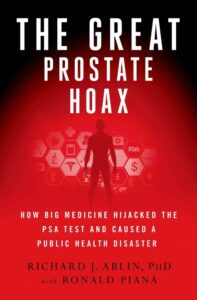The Size of a Walnut
The prostate (not prostrate) is a walnut-sized gland located between the bladder and the penis, just in front of the rectum. The urethra runs through the center of the prostate and transports urine out of the body. The primary role of the prostate is to secrete part of the alkaline fluid (semen) which helps sperm travel and survive.
Enlarged Prostates are Common as Men Age
Prostates can enlarge as men age, a condition called benign prostate hyperplasia, or BPH. Hyperplasia is a condition in which the number of normal cells increases, but it is not cancer. BPH compresses the urethra, which can cause discomfort, urinary retention, and urinary urgency.
Symptoms of BPH include frequent or urgent need to urinate, increased urination during the night, difficulty starting urination, weak urine stream, urine stream that starts and stops, and an inability to completely empty the bladder.
Consider seeing a doctor when these symptoms develop since other causes of BPH could include urinary tract infection, prostatitis, and bladder or kidney stones. While BPH is not life-threatening, it can increase the risk of urinary tract infections, bladder stones, and kidney disease.
Most men develop BPH as they age and it is estimated that almost 80% of men have it by age 70. By the age of 80, 25% of men have undergone some type of surgical procedure to relieve their symptoms. While considered a normal part of aging, the primary cause of BPH is increases in levels of growth hormones like IGF-1, and sex hormones; and diet and lifestyle choices.
The PSA Test
Let's refer to Dr. Richard Ablin on this one - after all, he's the guy who discovered PSA (prostate-specific antigen) back in 1970.
Dr. Ablin wrote an informative, eye-opening book titled The Great Prostate Hoax, in which he reveals that his discovery of PSA was never meant to be used for the screening of prostate cancer.
Nonetheless, as the result of politics, profit, and downright fraud, the test was patented and eventually approved by the FDA, resulting in yet another multi billion-dollar medical industry.
Not only is the false-positive rate of the PSA test a whopping 78%, the test does NOT detect cancer. It can only be used to assess risk. A PSA level of 4.0 ng/mL or lower was/is typically considered normal, depending on age.
But there is no definitive value, either. A man with a PSA reading of .5 could still have cancer, and a man with a reading of 11 could be cancer-free. Plus there are medical conditions and other various factors that can cause a man's PSA level to fluctuate, including bike riding.
Dr. Ablin points out the vast amount of harm that's been done to millions of men since the PSA test was approved. He covers that in his book, or you can watch a short video by Dr. Pam Popper as she recaps his message.
Even our CDC has a lot to say regarding the risks vs benefits of the PSA test.
Men, the choice to get tested is up to YOU....not necessarily your doctor.
And if you want to monitor yourself - without going through the medical system - I recommend Ulta Lab Tests. Just order your desired tests online, go to their nearest blood draw facility, and get your results in a day or two.
Protect Yourself from Prostate Cancer
First of all, ditch the dairy. High levels of IGF-1 (Insulin-like Growth Factor) is associated with a much higher risk of both prostate and breast cancer. Dairy based foods such as milk and whey protein increase the levels of IGF-1 significantly.
The risk that a man consuming dairy foods will develop prostate cancer is higher than the risk that a smoker will develop lung cancer.
Diets high in animal protein and high in fats also play a major role in the development of cancer. Animal-based foods are highly inflammatory, and according to our top cancer researchers, eating an inflammatory diet increases the odds of getting cancer by 75%.
One study showed that consuming fried foods more than once a week also increases the risk of prostate cancer by as much as 37%, and that risk is even stronger for more aggressive forms of the disease. Those fried foods include French fries and donuts.
To provide maximum protection against cancer, men AND women should change their dietary pattern, and switch to a low-fat, plant-based diet without dairy, oils, and fried foods. Here's a 21-day meal plan to get you started. It's not as scary as it sounds and the foods are absolutely delicious - no sticks, twigs, and rabbit food, I promise. If you found this article helpful, check out this free training class on the healthiest way to protect yourself not only from cancer, but our other top killers as well!
If you found this article helpful, check out this free training class on the healthiest way to protect yourself not only from cancer, but our other top killers as well!
References: Wellness Forum Health Briefs
Photo courtesy of Pexels.com

